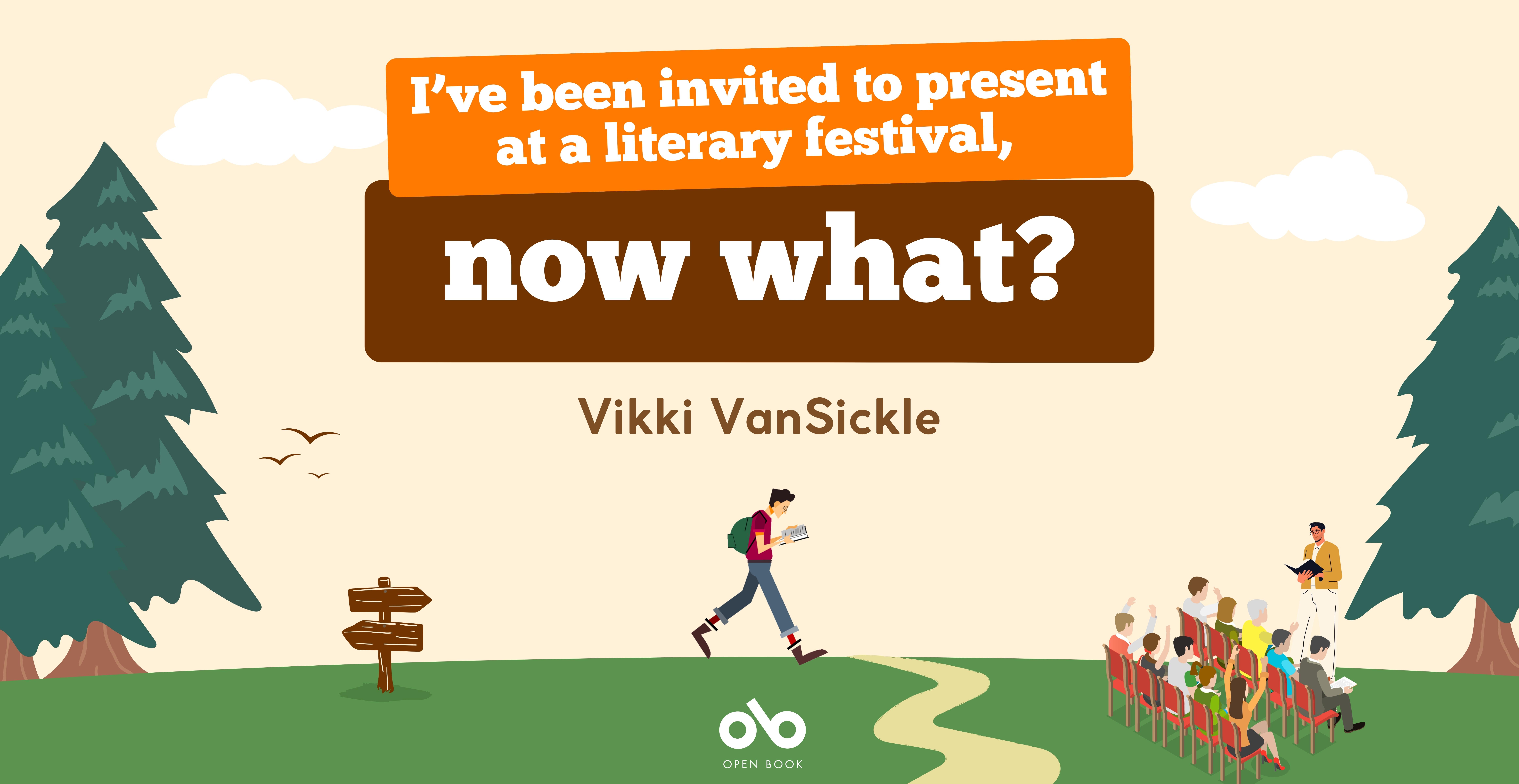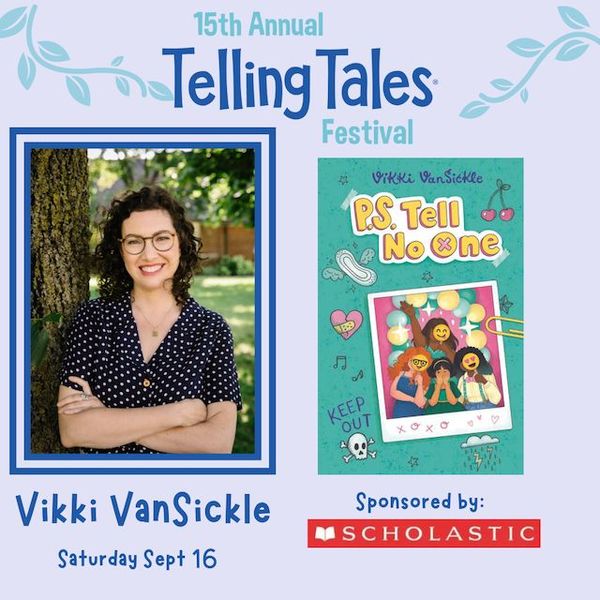I’ve been invited to present at a literary festival, now what?
By Vikki VanSickle
From the Brigadoon-esque setting of The Eden Mills Writer Festival to the hustle and bustle of TIFA Kids, it’s literary festival season. Everyone loves an invite to a party, but make sure you have all the details before showing up dressed in a full Roller Blade Ken costume for a black-tie event.
Tech & Specs
Reading a picture book in a bucolic garden setting at Telling Tales to twenty kindergarteners and their parents is very different from presenting to 400+ tweens at Vancouver Writers Fest’s Granville Island Stage. Find out the technical capabilities and event specifics so you can prepare.
Tech:
- Is there a microphone?
- If so, what kind (headset, lapel, handheld, stand)?
- Do you have the option of presenting slides?
- How would the organizer like to receive them (email, shared drive, on a usb key?)
Pro tip: Always email a copy of your presentation to yourself and keep it on a USB key that you bring with you to the event.
Specs:
- What ages are you presenting to?
- How many people are expected?
- Is the event space inside or outside?
- Is the event billed as a reading, workshop, interview, panel, or activity?
Pro tip: If you’re doing a panel, find out who the other authors are and read their books.
Practice Reading Aloud
Read your selection aloud, especially if you’re a novelist who is not used to doing so. You may discover that your favourite, witty exchange between characters is hard for you—a solo reader and probably not a performer— to pull off, or the section you thought was poignant and beautiful is too long and a bit low-energy for a 2pm outdoor festival. Play around with timing, where you want to take pauses, and decide if you want to interject with a writing anecdote or back story. Pick two alternate selections and practise those, too. It’s always good to have options in case the group asks for another reading, or you panic and read too quickly and have time to fill.
Pro-tip: I can’t explain the science behind it, but when reading aloud from a novel in front of a crowd, the font suddenly becomes three times smaller, denser, and impossible to read. Consider printing your selection out in a large, readable font and putting it in a folder or duo-tang and read from that. You can also notate it—pause here, whisper this, add back story here, etc.
Your CanLit News
Subscribe to Open Book’s newsletter to get local book events, literary content, writing tips, and more in your inbox
Prep Your Own Questions
If your event has an interviewer or facilitator find out if they can share the questions with you in advance and prep some responses. You don’t need to memorize them, but nailing your responses ahead of time will come in handy in the heat of the moment. If you don’t have a facilitator, it is still helpful to have some stock answers ready for the Q&A. Here is a list of questions that come up all the time:
- Why did you write this story?
- What inspired this story?
- What was the most difficult part of writing this story?
- What was the most fun part of writing this story?
- Who are your favourite books/authors?
- What are you working on now?
- What advice do you have for aspiring writers?
Pro tip: Ask your audience the more directive “What do you want to know?” rather than the loose and open-ended “Do you have any questions?”
Promotional Assets
Ask your publicist or festival contact if they have designed social assets you can share. Remember that many festivals have small budgets and rely on grants and volunteers and individualized assets are not always within the scope of possibility. If you’re design savvy even in the slightest, ask if you can use their logo to make your own assets. Some platforms (like Canva) have great free options. Be sure to use the right hashtags and tag the festival and your publisher in your posts.
Pro tip: Don’t crowd your social assets with text. Your assets should include your picture, the book you’ll be promoting, the festival name and logo, and the date of your event. Any other details can be included in the caption. Here is an example from this year’s Telling Tales Festival:
Quick Dos & Don’ts
Do: Introduce yourself to the bookseller on site
Don’t: Ask why they don’t have fifty copies of every book you’ve ever written on hand
Do: Visit the hospitality suite or author lounge
Don’t: Stand at the back of another author’s event and talk through it—they can see you, and it’s rude
Do: Dress for the weather. Fall in Canada is unpredictable. Bring water, sunscreen and a jacket to outdoor events
Don’t: Be discouraged at the eclectic mix of people who show up (and sometimes leave part way through) free public events. I once presented a YA novel to a handful of hangry toddlers and an elderly woman who thought my sci-fi adventure The Winnowing was about agriculture. At the very least, you’ll get a good story out of it. And that woman ended up buying a book for her grandkid.
The views expressed by Open Book columnists are those held by the authors and do not necessarily reflect the views of Open Book.
Vikki VanSickle is the author of a number of acclaimed novels for children including P.S. Tell No One, Words That Start With B, Summer Days, Starry Nights, and the 2018 Red Maple award-winning The Winnowing. She has also written the picture books If I Had a Gryphon, Teddy Bear of the Year, and Anonymouse. Vikki started her career as an independent bookseller and spent 12 years working in children's publishing. A devoted member of the Canadian children's book world, she curates and presents regular book segments at CTV Your Morning and balances her writing with arts education for all ages.



